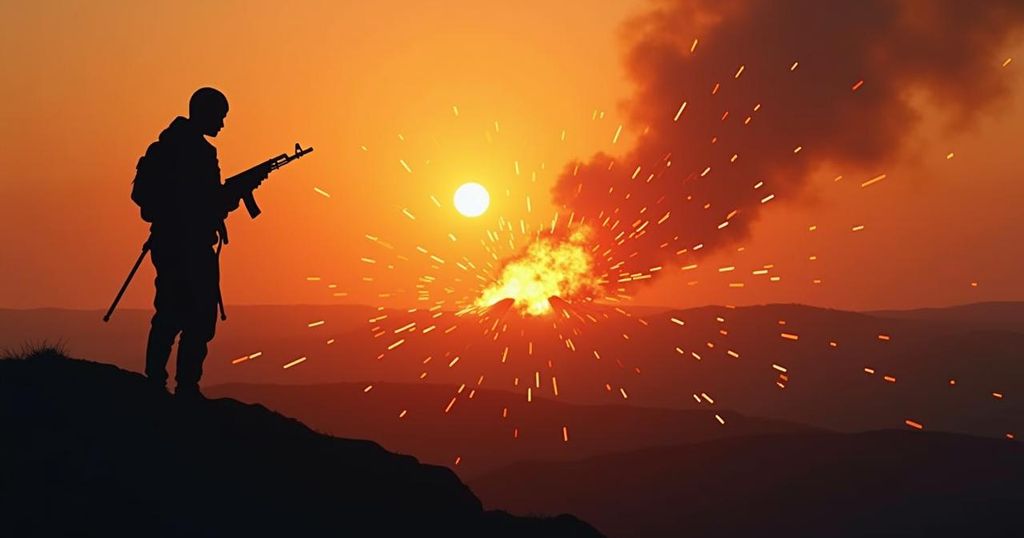Analysts warn that Israel is likely to respond to Iranian missile strikes by taking military action during the current U.S. election season, a period when America may be less likely to intervene. As tensions rise, the strategic implications of these actions could influence the course of future U.S.-Israel relations and regional stability.
Analysts have provided insight into the current geopolitical tensions between Israel and Iran, noting that Israel is poised to leverage America’s preoccupation with the upcoming presidential election to launch retaliatory strikes against Iran. Reports indicate that Iran has recently fired up to 200 missiles at Israel, purportedly in retaliation for the killing of Hamas leader Ismail Haniyeh earlier this year, as well as in response to perceived Israeli aggression in Gaza and Lebanon. With fears of an escalating conflict growing, Israel’s military actions may intensify, particularly with significant anniversaries approaching, including the onset of the Israel-Hamas war triggered by Hamas’s attacks on October 7. The political climate in the United States is also heating up as the nation prepares for its election on November 5, where voters will decide between Vice President Kamala Harris and former President Donald Trump. Experts, including Beni Sabti from The Institute for National Security Studies and Michael Pregent from the Hudson Institute, suggest that Israel is using this window of perceived vulnerability in the U.S. to execute its military objectives without intervention. They argue that such behavior is not uncommon among nations facing adversarial threats. Sabti noted, “Israel will use this time—while the U.S. is busy with itself and the election—to hit Iran, while the U.S. is not warning or stopping it.” Pregent echoed this sentiment, emphasizing the relevance of the upcoming U.S. election cycle as a prompt for Israel to act decisively against its adversaries. Moreover, Feryal Cherif from Loyola Marymount University remarked that Israel feels bolstered by the current political distractions in America, suggesting that U.S. administrations are typically more restrained in their interactions with Israel during electoral seasons compared to periods of stable governance. Meanwhile, the Biden administration maintains that it does not endorse an Israeli strike on Iranian nuclear sites, although President Biden has reaffirmed the U.S.’s unwavering support for its ally, stating, “Make no mistake, the United States is fully, fully supportive of Israel.”
The article examines the heightened tensions between Israel and Iran amidst a significant political event in the United States—the presidential election. Analysts assert that Israel may see this as an opportune moment to act against Iran without fear of immediate U.S. intervention or admonition. The backdrop includes Iran’s missile attack against Israel, which was framed as a response to various provocations, including the killing of a Hamas leader and ongoing conflicts in the region. The strategic considerations of both nations are compounded by the geopolitical landscape influenced by U.S. domestic politics.
In conclusion, the article underscores the strategic calculus that Israel is likely to employ in its military operations against Iran during the U.S. election season, believing that it can act more freely without U.S. intervention. As tensions escalate, analysts warn of the potential for an all-out conflict in the region. The upcoming election serves as a critical point where both Israeli actions and U.S. foreign policy could significantly impact regional stability.
Original Source: www.newsweek.com






